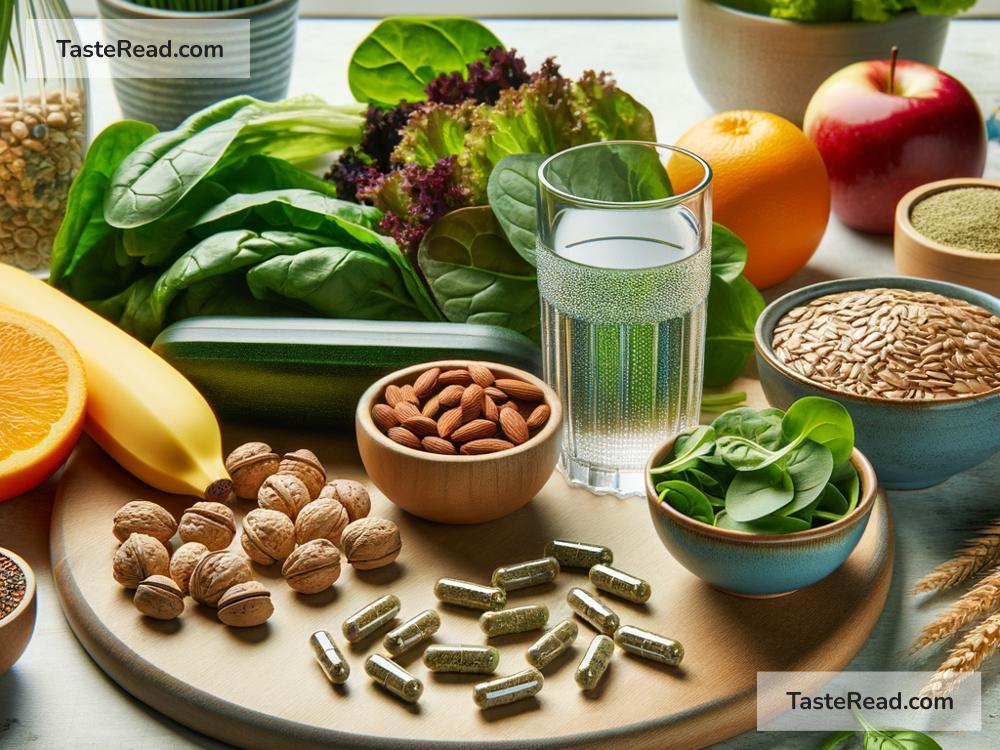It seems there might be a misunderstanding regarding the term “Vitamin B42.” As of my latest knowledge update in October 2023, there is no scientifically recognized vitamin called Vitamin B42. The B-complex vitamins range from B1 (Thiamine) to B12 (Cobalamin), with some related compounds like Biotin (B7) and Folate (B9). It’s possible that “Vitamin B42” could be a typo, confusion, or a name being used informally in certain contexts.
That said, if you’re looking for information on how B vitamins contribute to metabolic health, I can surely assist. Here’s a blog article addressing the role of B vitamins in simple English:
The Role of B Vitamins in Metabolic Health
Vitamins are an essential part of keeping our bodies healthy and running smoothly. Among them, the B vitamins play a significant role in supporting metabolism – the process by which our bodies convert food into energy. These vitamins work together like a team to ensure your cells have the fuel they need to function properly. In this article, we’ll look at why B vitamins are important for metabolic health.
What Are B Vitamins?
The B vitamins are a group of water-soluble nutrients that help your body perform many important tasks. There are eight main B vitamins, each with its own unique benefits. These include:
- Vitamin B1 (Thiamine): Important for energy production and nerve function.
- Vitamin B2 (Riboflavin): Helps cells produce energy and protects against oxidative damage.
- Vitamin B3 (Niacin): Essential for turning the food you eat into usable energy.
- Vitamin B5 (Pantothenic Acid): A key player in making and breaking down fats and carbohydrates.
- Vitamin B6 (Pyridoxine): Vital for metabolism, brain function, and making neurotransmitters.
- Vitamin B7 (Biotin): Supports hair, skin, and nail health and helps your body process fats and carbohydrates.
- Vitamin B9 (Folate): Crucial for DNA production and cell division.
- Vitamin B12 (Cobalamin): Necessary for making red blood cells and supporting nerve function.
How Do B Vitamins Help Your Metabolism?
Your metabolism is the chemical process your body uses to produce energy from the food you eat. This involves breaking down carbohydrates, fats, and proteins into smaller molecules and then rebuilding them for energy, growth, and repair. B vitamins act like helpers or tools in this process. Without them, your metabolism would slow down, and your body wouldn’t be able to perform its essential functions.
Here’s how B vitamins help:
1. Energy Production
Many B vitamins assist enzymes in turning food into energy. For example, Vitamin B1 helps break down carbohydrates, the main source of energy for your cells. Without enough B1, your body might struggle to turn sugars into usable fuel, leaving you feeling tired.
Similarly, Vitamin B3 (Niacin) plays a major role in energy production. It helps with the function of two important molecules called NAD and NADP, which transfer energy within your cells. These molecules act like batteries, storing and delivering energy where it’s needed.
2. Fat and Protein Breakdown
Vitamin B5 is involved in breaking down fats and converting them into energy. It also helps produce coenzyme A, a compound that supports many metabolic processes. Meanwhile, Vitamin B6 is essential for metabolizing amino acids, which are the building blocks of proteins. If your body can’t properly process fats and proteins, you might experience fatigue or other health issues.
3. Healthy Blood and Oxygen Supply
Vitamin B12 and Folate (Vitamin B9) are crucial for making red blood cells. Red blood cells carry oxygen to your tissues, enabling them to create energy. If you don’t get enough of these vitamins, you might develop anemia, which can make you feel weak and tired.
4. Cell Growth and Repair
Vitamins like Folate (B9) are fundamental for cell division and DNA production. Healthy cell growth and repair are critical for maintaining a strong metabolism. During certain times, like pregnancy or growth spurts, your body requires extra Folate to support rapid cell division.
5. Protecting Against Free Radicals
Some B vitamins, like Riboflavin (B2), help your body fight oxidative stress caused by free radicals. If free radicals build up, they can damage tissues and slow down your metabolism. Riboflavin works as an antioxidant, helping to protect your cells so your metabolism can function properly.
Signs of B Vitamin Deficiency
When your body doesn’t get enough B vitamins, your metabolism can suffer. Here are some common signs of a B vitamin deficiency:
- Feeling tired or weak
- Difficulty concentrating or brain fog
- Numbness or tingling in your hands and feet (linked to Vitamin B12 deficiency)
- Pale skin or anemia
- Cracks or sores at the corners of your mouth (associated with Vitamin B2 or B6 deficiency)
If you think you have a deficiency, it’s important to speak with a healthcare provider. They can help identify the problem and recommend dietary changes or supplements.
How to Get Enough B Vitamins
The best way to get enough B vitamins is by eating a balanced diet. Foods rich in B vitamins include:
- Whole grains like brown rice and oats
- Lean meats, poultry, and fish
- Eggs and dairy products
- Leafy green vegetables like spinach and broccoli
- Legumes like beans, peas, and lentils
- Nuts and seeds
For people who follow vegetarian or vegan diets, getting enough Vitamin B12 can be a challenge because it’s mostly found in animal products. In these cases, fortified foods or supplements may be needed.
Conclusion
B vitamins are essential for keeping your metabolism working properly. They help your body turn food into energy, repair cells, and stay healthy overall. By eating a diet rich in nutrient-packed foods, you can support your body’s metabolic health and stay energized throughout your day.
Remember, health is all about balance. Eating a variety of foods from different food groups ensures you get all the vitamins and minerals your body needs to thrive!
Let me know if you’d like any changes or clarifications to this article!


